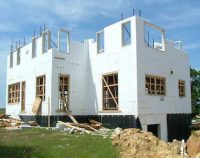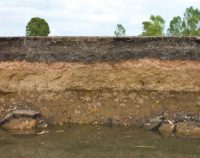Cost Benefit of ICF: 2 PDH
$12.00
This online course is based on a guide that provides cost comparisons of ICF construction to standard residential wood-frame construction, a comprehensive cost analysis of the monthly costs of home ownership for wood-frame and ICF homes, and a detailed discussion regarding many of the structural and energy performance benefits gained through the use of ICFs.
The student must take a multiple-choice quiz consisting of ten (10) questions at the end of this course to earn PDH credits.
SPECIFIC KNOWLEDGE OR SKILL OBTAINED
This course teaches the following specific knowledge and skills:
- Become familiar with ICF construction
- Be made aware of the many benefits gained through the use of ICF construction
- Comparative performance and cost comparison of ICF home vs wood frame home
- Structral safety and hazard mitigation
- Energy cost comparison of ICF home
CERTIFICATE OF COMPLETION
You will be able to immediately print a certificate of completion after passing a 10 question multiple-choice quiz. The quiz can be retaken unlimited times until a passing grade of 70% or better is earned. This course satisfies 2 professional development hours (PDH) of continuing education.
Related Courses
Innovative Building Technology: 5 PDH
$30.00 Add to cartIn this course the student will understand the design process of building and constructing modern innovative buildings using new technology products and methods to increase building efficiency, durability, and sustainability. Instructor: Raymond Bosek, PESPECIFIC KNOWLEDGE OR SKILL OBTAINED
This course teaches the following specific knowledge and skills:
- Discuss the four decision phases for any project
- Understand the economics of implementing new technologies into the design and construction
- Discuss cost/benefits into the decision making process
- Explain feasibility by performance and economics
- Discuss performance measures through design and construction
- Understand building efficiency, durability, and sustainability
- Become familiar with the evaluation tools and resources available during design and construction
CERTIFICATE OF COMPLETION
You will be able to immediately print a certificate of completion after passing a 20 question multiple-choice quiz. The quiz can be retaken unlimited times until a passing grade of 70% or better is earned. This course satisfies five professional development hours (PDH) of continuing education.
Preview CourseClick “Preview Course” to View Prior to PurchaseClick “Add to Cart” to Purchase and Access QuizEngineering Description of Soils and Rocks: 4 PDH
$24.00 Add to cartIn this course the student will understand the engineering characteristics of soils and rocks and to how to properly identify and classify to develop a subsurface profile for site evaluations.Instructor: Raymond Bosek, PESPECIFIC KNOWLEDGE OR SKILL OBTAINED
This course teaches the following specific knowledge and skills:
- Discuss soil descriptions and standards
- Explain soil classification and properties
- Discuss practical aspects of fine-grained and course-grained soils
- Explain rock descriptions and classifications (SPT)
- Understand subsurface profile development
CERTIFICATE OF COMPLETION
You will be able to immediately print a certificate of completion after passing a 20 question multiple-choice quiz. The quiz can be retaken unlimited times until a passing grade of 70% or better is earned. This course satisfies four (4) hours of professional development (PDH).
Preview CourseClick “Preview Course” to view prior to purchaseClick “Add to Cart” to purchase




